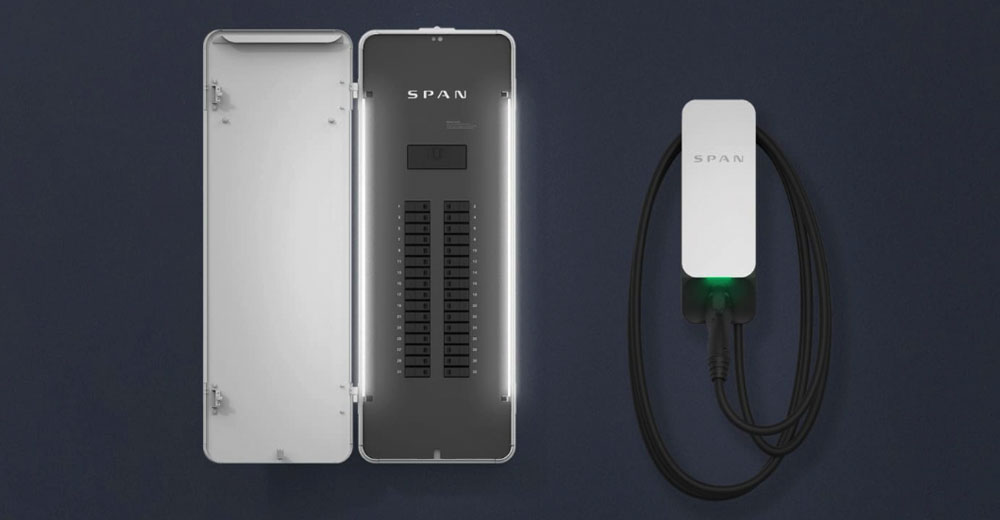The end of the year is quickly approaching, which means it’s time to do the analyst thing and look ahead to the changes, trends, and anticipated disruptive products we are likely to see next year.
Along with many others, I totally missed AI going vertical this year, so I’m a bit leery of forecasting because AI is moving behind the scenes and creating undisclosed offerings that could be equally disruptive.
Let’s talk about what I see coming, and we’ll close with my last Product of the Week for 2024: the AI-driven SPAN electrical panel, a tool that has helped me find and eliminate devices that I’m not using much but are still pulling a lot of power.
AI Revolution
I’m writing this at the AI launch event that AMD is holding in San Jose, Calif. While every chip manufacturer is now chasing the AI genie, next year, we’ll see a separation between companies effectively using AI to advance themselves and those that are not. AMD is one of the companies aggressively using AI, but it is hardly alone. Microsoft is even more aggressive.
The broad application of AI technology has led to faster product releases, more interesting offerings, and advancements in human-machine interfaces that focus on how you want to interface with technology.
2024 will still only be the beginning of this wave.
Going forward, more and more products will not only be created with artificial intelligence, but AI will be used to advance itself, creating the potential for almost unbelievable product advancement speeds and ever more advanced capabilities that, without AI, might have had to wait for the 2030s before birthing.
While the rate of change will be unprecedented, it will pale in comparison to the speeds we’ll see later in the decade. If you don’t like change, the coming decade will suck.
Electric Cars
There will continue to be pushback on the move to electric cars until stakeholders address the charging problems.
A move to the Tesla charging standard will help a lot. Still, it is unlikely many of the existing charging stations or cars will move to the new standard in 2024, which will cause buyers either to revert to ICE (internal combustion engine) vehicles or to delay their new car purchases until the new chargers and new cars with this socket are in market.
Tesla, which might have been able to avoid this downturn, is still suffering under the cloud of its CEO’s behavior, so even Tesla may not be able to dodge this potential downturn.
Autonomous Driving
The first working Level 3 autonomous cars will come to market. However, most, if not all, of these cars will be electric. The combination of the electric car pullback mentioned above and increasing distrust for this technology coupled with a subscription model for this technology should cause this feature to underperform unless a well-funded and executed marketing campaign can change perceptions.
This last is unlikely, suggesting that this new automotive technology will underperform in the market. It will likely take several years to reverse this trend, which is a shame because the coming autonomous technology should significantly outperform what is currently on the road and driving these negative perceptions.
Head-Mounted Displays and New Hardware Designs
Advancements in head-mounted displays, such as the Rokid Max AR Glasses and Goovis G3 Max, made significant inroads in 2023.
We should begin seeing more hardware and the potential for smartphones using this technology to move into markets traditionally dominated by PCs more aggressively.
The quality of these displays has reached a level where they are now viable, and the industry is poised for a major player to step in, creating innovative and captivating products.
It is not likely we’ll see a major PC displacement in 2024, but we could see the foundation for one in 2025 or 2026.
Deepfakes Used Broadly
People are just discovering they can use AI tools to create avatars and then use these avatars to create professional-looking videos using written scripts in place of live actors.
Expect this technology to be increasingly used legitimately by media outlets, as is already done in places like South Korea, to reduce the load on live TV talent. We will also begin to see this used for longer content, but I expect that will be more of the exception than the rule.
We should see a massive wave of this behavior when the recent actors’ union contract expires in three years. We’ll also see this used illegitimately to discredit opponents in elections and potentially harm the reputations of people the bad actor wants to hurt.
Defending against illicit use of this technology will become a much greater priority in 2024.
Working From Home
Work-from-home will continue to decline as a trend unless we have another pandemic event, which could be likely given the news about what is currently going on in China.
Corporate sectors, including HR departments, simply haven’t done enough to make remote employees feel like they are part of their companies and not disadvantaged by being remote. There has also been a lack of progress in advancing remote management tools and retraining managers to manage these remote employees more effectively and efficiently.
Particularly for new hires, the move to remote work should mostly revert so that those employees and managers who couldn’t adapt to remote work can have a more effective and inclusive employee experience.
I expect some of the videoconferencing vendors that are currently under 10% of market share to leave the market. It is increasingly likely that Zoom, the market leader, will be acquired by one of the currently marginal (in terms of market share) players. Microsoft, with a 25% market share and a policy of supporting remote work, should remain an example of how to do this right.
Digital Immortality
We should see the first instances of digital immortality in 2024, but these won’t have transference capability so much as they’ll be digital clones of existing people.
For parents who don’t expect to be alive when their children mature, this technology will allow people to create a long-lasting clone of themselves that relatives, friends, children, and spouses can continue to interact with after the human has passed.
The numbers will be small in 2024, and I expect that resolving several issues, particularly cost, will be necessary to prevent these related efforts from going mainstream next year. It’ll be more a taste of things to come than a true technology wave that will likely wait until this technology improves and training times become more reasonable.
Massive Improvements in Digital Assistants
Current digital assistants like Alexa and Siri are just voice-to-text and text-to-voice interfaces. These will be aggressively replaced by generative AI tools next year, allowing for a massive change in capability and intelligence in this tool set.
I expect some people will begin to choose to spend more time with their digital assistant than with actual people, so the concept of dating one of these things will advance in 2024. This trend of increased reliance on digital assistants will likely result in several problems, not the least of which is aggressive hacking of this product class to manipulate people more effectively.
Overall, being able to tell the difference between people and AIs will become more difficult in 2024.
Malware
Another class of products that will change dramatically in 2024 is malware. It will become more intelligent and able to aggressively self-propagate. The potential for one of these advanced programs to jump containment and do massive worldwide damage will increase dramatically.
This increased risk of advanced malware may represent the biggest threat to companies and individuals in 2024, particularly in countries that are already at war with each other.
Wrapping Up
This list is only a taste of what is coming in 2024. The impact of AI will be huge and cut across staffing, human-machine interfaces in many, if not most, devices — and hostile applications.
Even though 2023 has seemed incredibly disruptive, 2024 will be more so, and it will pale in comparison to the changes coming later in the decade.
If you don’t like change, this will be an ugly decade, but if you thrive on change, this should be a great time to be alive. So, maybe you should learn to love change.

SPAN AI-Driven Home Power Panel
One of the interesting products I installed this year is the SPAN electrical panel.

(Image Credit: SPAN)
This AI-driven solution allows the user to identify what in their home is pulling power and how much that impacts their power bill or, in the case of off-grid power, limiting the time they spend operating off-grid.
I have a solar plant on my roof and four Tesla batteries in my house. This SPAN panel, which largely self-programs, has identified what is pulling the most power in my house.
If we lose power for days, this should allow me to prioritize what stays powered and what I can power off from the panel. It knows what is critical in terms of communication (routers, etc.) and food refrigeration, so I’m not accidentally disconnecting from the world in case I need help or causing my food to spoil if I’m sheltering in place.
The panel looks much better than my old panel and has built-in lights in case you must see what breaker you are reaching for if one has blown. I have a lot of devices, so I have two panels.
Cost
At around $3,500 each, the SPAN electrical panels are not a cheap date.
The cost of installing these things is about twice the cost of the panel itself because the electrician must remove the old panel and then wire in the new one, making them suited better for new buildings or remodels where you are already replacing much of the wiring.
Still, the SPAN app has taken over the tools needed to monitor the Tesla batteries and the solar system, both of which talk to the panel, so you end up with a single view of your electrical generation, battery capacity, and usage.
One issue is that the app doesn’t yet aggregate both panels, so the resulting dashboard is bifurcated. I’m told a software update is coming that will allow those of us who need two panels to get a single view as if we just had one panel.
In the end, the SPAN panel is saving me money and making my home more resilient to power outages, so it is my Product of the Week.























































